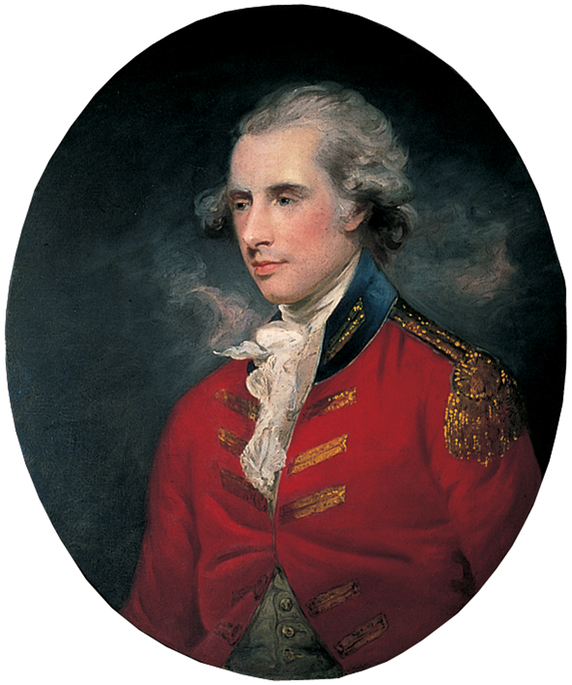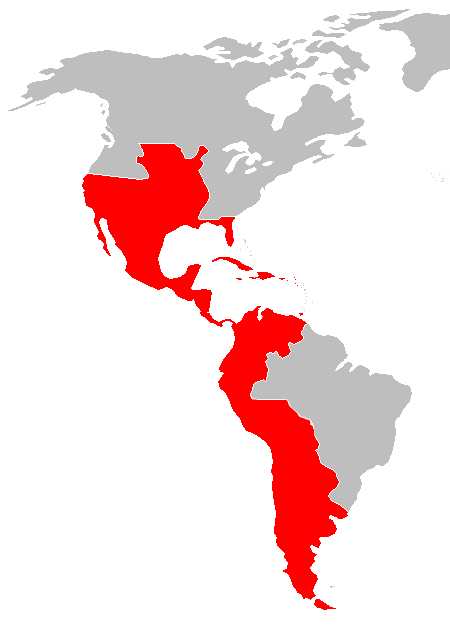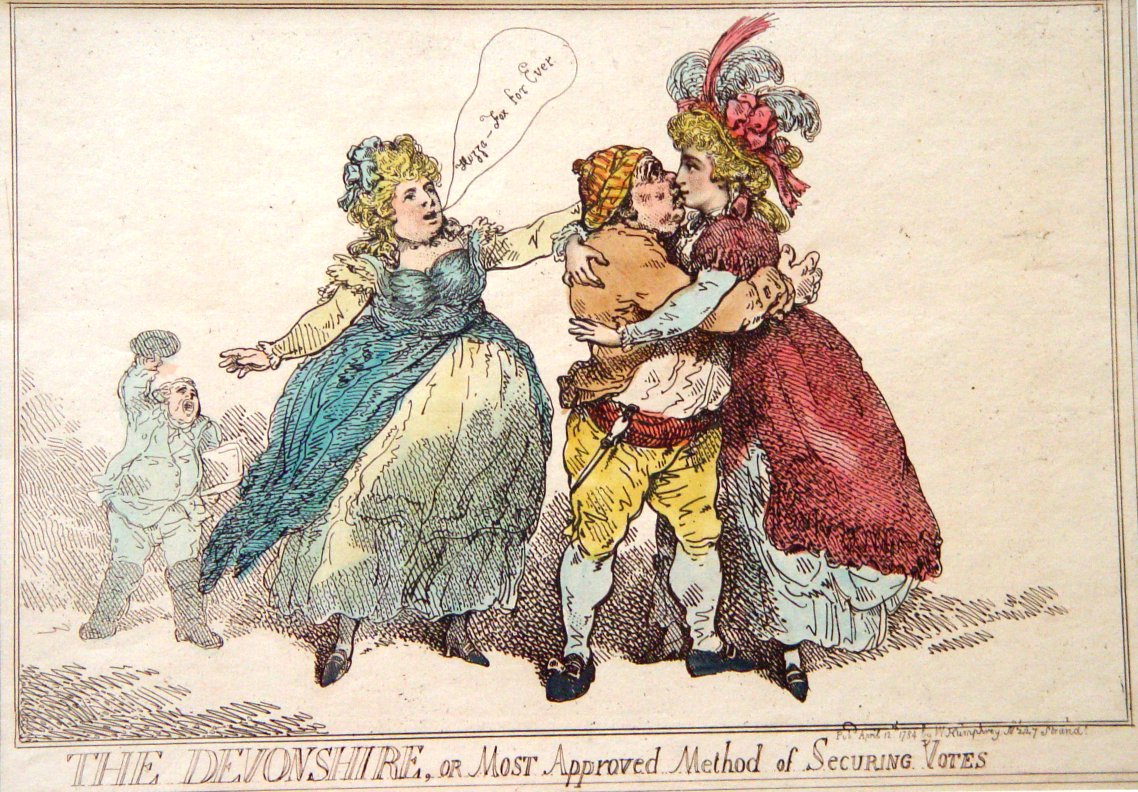|
Edward Morant (politician)
Edward Morant (1730–1791) was a British politician and plantation owner who sat in the House of Commons for 26 years from 1761 to 1787. Early life and education Morant was the son of John Morant of Jamaica and his wife Mary Pennant, daughter of Edward Pennant, chief justice of Jamaica, and was baptised on 10 December 1730. He was educated at John Roysse's Free School in Abingdon, (now Abingdon School). He matriculated at St Mary Hall, Oxford on 7 March 1747. gaining a Doctor of Civil Law. Morant's father died when he was three and when he came of age, he inherited family estates on the island of Jamaica; they were put at , and the plantation accounts show an average income from Jamaica of about £20,000 per annum. Several places on the island take the family name including Morant River, Morant Point and Morant Bay. Marriages Morant married firstly Eleanor Angelina Dawkins, widow of William Dawkins and daughter of Edward Yeamans of Liguanea, Jamaica, on 10 June 1754. She die ... [...More Info...] [...Related Items...] OR: [Wikipedia] [Google] [Baidu] |
Member Of Parliament
A member of parliament (MP) is the representative in parliament of the people who live in their electoral district. In many countries with bicameral parliaments, this term refers only to members of the lower house since upper house members often have a different title. The terms congressman/congresswoman or deputy are equivalent terms used in other jurisdictions. The term parliamentarian is also sometimes used for members of parliament, but this may also be used to refer to unelected government officials with specific roles in a parliament and other expert advisers on parliamentary procedure such as the Senate Parliamentarian in the United States. The term is also used to the characteristic of performing the duties of a member of a legislature, for example: "The two party leaders often disagreed on issues, but both were excellent parliamentarians and cooperated to get many good things done." Members of parliament typically form parliamentary groups, sometimes called caucuse ... [...More Info...] [...Related Items...] OR: [Wikipedia] [Google] [Baidu] |
1774 British General Election
The 1774 British general election returned members to serve in the House of Commons of the 14th Parliament of Great Britain to be held, after the merger of the Parliament of England and the Parliament of Scotland in 1707. Lord North's government was returned with a large majority. The opposition consisted of factions supporting the Marquess of Rockingham and the Earl of Chatham, both of whom referred to themselves as Whigs. North's opponents referred to his supporters as Tories, but no Tory party existed at the time and his supporters rejected the label. Summary of the constituencies See 1796 British general election for details. The constituencies used were the same throughout the existence of the Parliament of Great Britain. Dates of election The general election was held between 5 October 1774 and 10 November 1774. North's ministry pushed for elections to occur in 1774 (instead of the originally planned 1775) in part due to wanting to avoid having an election coincide with in ... [...More Info...] [...Related Items...] OR: [Wikipedia] [Google] [Baidu] |
Sir Harry Burrard, 1st Baronet, Of Walhampton
Sir Harry Burrard, 1st Baronet (1707 – 12 April 1791) was a British politician who sat in the House of Commons for 37 years from 1741 to 1778. Early life Burrard was the eldest son of Paul Burrard MP, of Walhampton, and his wife Lucy Dutton-Colt, daughter of Sir Thomas Dutton-Colt, Envoy to the Courts of Hanover and Dresden. In 1728, Burrard was appointed Gentleman Usher to Frederick, Prince of Wales and in 1731 was appointed as a Collector of the Customs of London. In 1738, Burrard succeeded his father to Walhampton Manor. Political career The Burrard family had a strong interest in the port town of Lymington, which usually enabled them to fill both of its seats in Parliament. Burrard's father and grandfather both represented the borough in Parliament. At the 1761 he was returned as Member of Parliament for the Lymington constituency and retained the seat until 1778. He was appointed riding forester of the New Forest in 1754 and Governor of Calshot Castle in 1761. On 3 Apri ... [...More Info...] [...Related Items...] OR: [Wikipedia] [Google] [Baidu] |
Hugo Meynell
Hugo Meynell (June 1735 – 14 December 1808) was an English country landowner and politician who sat in the House of Commons between 1762 and 1780. He is generally seen as the father of modern fox hunting, became Master of Fox Hounds for the Quorn Hunt in Leicestershire in 1753 and continued in that role for another forty-seven years (the hunt is so called after Meynell's home, Quorn Hall in Quorndon, North Leicestershire). Life He was born the son of Littleton Pointz Meynell in June 1735. Meynell pioneered an extended chase at high speeds through open grassland. Borrowing the pioneering breeding techniques of his neighbour, the sheep farmer Robert Bakewell, Meynell bred a new form of hound, with greater pace and stamina and a better sense of scent. In 1762 Meynell was elected as one of the two Members of Parliament for Lichfield, after filing an election petition challenging the election of John Levett of Wychnor, Staffordshire. Meynell took the seat of Levett, a Tory. Bu ... [...More Info...] [...Related Items...] OR: [Wikipedia] [Google] [Baidu] |
William Hussey (died 1813)
William Hussey (c.1724 – 26 January 1813) was an English businessman and politician who sat in the House of Commons for 48 years from 1765 to 1813. Early life Hussey was baptised on 1 January 1725, the son of John Hussey, Mayor of Salisbury in 1737. On his father's death in 1739 he inherited property in Wiltshire and Dorset and became a successful clothier in Salisbury. He married firstly Mary Eyre, the daughter of John Eyre of Landford Lodge, Wiltshire, on 9 October 1752. She died on 21 May 1754. In 1755 he was elected a councillor for the city of Salisbury, becoming an alderman in 1756 and mayor in 1759. He married secondly Jane Marsh, daughter of Robert Marsh, a London merchant and Governor of the Bank of England on 5 April 1758. Political career Hussey was returned as Member of Parliament (MP) for St Germans at a by-election on 11 June 1765. At the 1768 general election he was returned as MP for Hindon. He was elected for Salisbury Salisbury ( ) is a cathedral ci ... [...More Info...] [...Related Items...] OR: [Wikipedia] [Google] [Baidu] |
John St Leger Douglas
John St. Leger Douglas ( – 23 May 1783) was an 18th-century member of the House of Commons of Great Britain. He owned Springfield Place, near Chelmsford, Essex. Early life and education Douglas was the eldest son of John St. Leger Douglas, a West Indian plantation owner, and his wife, Susannah, daughter of Michael Lambert, Deputy- Governor of St Kitts. He was a grandson of Col. Walter Douglas of Baads, Midlothian, Governor of the Leeward Islands. He was educated at Westminster School (1743), aged 10, and at Trinity College, Cambridge (1748). He succeeded his father in 1747. Career He was Member of Parliament for Hindon from 1769, at a time when bribery was the norm in this constituency, until 1774, and Member of Parliament for Weobley Weobley ( ) is an ancient settlement and civil parish in Herefordshire, England. Formerly a market town, the market is long defunct and the settlement is today promoted as one of the county's black and white villages owing to its abundan ... [...More Info...] [...Related Items...] OR: [Wikipedia] [Google] [Baidu] |
William Blackstone
Sir William Blackstone (10 July 1723 – 14 February 1780) was an English jurist, judge and Tory politician of the eighteenth century. He is most noted for writing the ''Commentaries on the Laws of England''. Born into a middle-class family in London, Blackstone was educated at Charterhouse School before matriculating at Pembroke College, Oxford, in 1738. After switching to and completing a Bachelor of Civil Law degree, he was made a fellow of All Souls College, Oxford, on 2 November 1743, admitted to Middle Temple, and called to the Bar there in 1746. Following a slow start to his career as a barrister, Blackstone became heavily involved in university administration, becoming accountant, treasurer and bursar on 28 November 1746 and Senior Bursar in 1750. Blackstone is considered responsible for completing the Codrington Library and Warton Building, and simplifying the complex accounting system used by the college. On 3 July 1753 he formally gave up his practice as a barris ... [...More Info...] [...Related Items...] OR: [Wikipedia] [Google] [Baidu] |
William Mabbott
William is a male given name of Germanic origin.Hanks, Hardcastle and Hodges, ''Oxford Dictionary of First Names'', Oxford University Press, 2nd edition, , p. 276. It became very popular in the English language after the Norman conquest of England in 1066,All Things William"Meaning & Origin of the Name"/ref> and remained so throughout the Middle Ages and into the modern era. It is sometimes abbreviated "Wm." Shortened familiar versions in English include Will, Wills, Willy, Willie, Bill, and Billy. A common Irish form is Liam. Scottish diminutives include Wull, Willie or Wullie (as in Oor Wullie or the play ''Douglas''). Female forms are Willa, Willemina, Wilma and Wilhelmina. Etymology William is related to the given name ''Wilhelm'' (cf. Proto-Germanic ᚹᛁᛚᛃᚨᚺᛖᛚᛗᚨᛉ, ''*Wiljahelmaz'' > German ''Wilhelm'' and Old Norse ᚢᛁᛚᛋᛅᚼᛅᛚᛘᛅᛋ, ''Vilhjálmr''). By regular sound changes, the native, inherited English form of the name shoul ... [...More Info...] [...Related Items...] OR: [Wikipedia] [Google] [Baidu] |
James Calthorpe (Yeoman Of The Removing Wardrobe)
James Calthorpe, DL (25 March 1699 – 11 March 1784) was a British politician and courtier. Biography Calthorpe was born at Elmswell, Suffolk and was the eldest son and heir of Christopher Calthorpe (1652–1717) and his wife, Elizabeth, née Kettleborough (died 1724). After completing his education, he travelled into France and Italy; and leaving Rome in August 1727, arrived in London in the autumn of that year. He was soon after appointed a Deputy Lieutenant for Suffolk on 20 December that year. By virtue of a warrant by Charles FitzRoy, 2nd Duke of Grafton, the Lord Chamberlain, Calthorpe was sworn and admitted as a Gentleman Usher Quarterly Waiter in Ordinary on 1 October 1731. By another warrant by Grafton dated 16 February 1742, he was appointed Yeoman of the Removing Wardrobe, an office he held until it was abolished in 1782. Calthorpe first came to reside at his family's ancestral home, Ampton Hall, in 1736, and immediately set about improving his mansion and estate ... [...More Info...] [...Related Items...] OR: [Wikipedia] [Google] [Baidu] |
Edward Morant (cricketer, Born 1772)
Edward Gregory Morant Gale (1772–1855) was an English amateur cricketer who made three known appearances in what are classified as first-class cricket matches between 1793 and 1795.Edward Morant CricketArchive. Retrieve 2021-12-14. He was a noted patron of the game who organised a number of matches in the 1790s and was a plantation owner in the British West Indies. Biography Morant was born in 1772, the son of Edward Morant, a , and his second wife Mary Whitehorne Goddard, daughter of James Goddard of Conduit Street, Lon ...[...More Info...] [...Related Items...] OR: [Wikipedia] [Google] [Baidu] |
Peace Of Paris (1783)
The Peace of Paris of 1783 was the set of treaties that ended the American Revolutionary War. On 3 September 1783, representatives of King George III of Great Britain signed a treaty in Paris with representatives of the United States of America—commonly known as the Treaty of Paris (1783)—and two treaties at Versailles with representatives of King Louis XVI of France and King Charles III of Spain—commonly known as the Treaties of Versailles (1783). The previous day, a preliminary treaty had been signed with representatives of the States General of the Dutch Republic, but the final treaty which ended the Fourth Anglo-Dutch War was not signed until 20 May 1784; for convenience, however, it is included in the summaries below. The treaty dictated that the British would lose their Thirteen Colonies and marked the end of the First British Empire. The United States gained more than it expected, thanks to the award of western territory. The other Allies had mixed to poor results. ... [...More Info...] [...Related Items...] OR: [Wikipedia] [Google] [Baidu] |
1784 British General Election
The 1784 British general election resulted in William Pitt the Younger securing an overall majority of about 120 in the House of Commons of Great Britain, having previously had to survive in a House which was dominated by his opponents. Background In December 1783, George III engineered the dismissal of the Fox–North coalition, which he hated, and appointed William Pitt the Younger as Prime Minister. Pitt had very little personal support in the House of Commons and the supporters of Charles James Fox and Lord North felt that the constitution of the country had been violated. The doctrine that the government must always have a majority in the House of Commons was not yet established and Fox knew he had to be careful. On 2 February 1784 Fox carried a motion of no confidence which declared "That it is the Opinion of this House, That the Continuance of the present Ministers in their Offices is an Obstacle to the Formation of such an Administration as may enjoy the Confidence of this ... [...More Info...] [...Related Items...] OR: [Wikipedia] [Google] [Baidu] |



